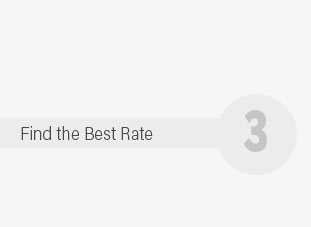 |
 |
 |
|---|
 |
 |
 |
 |
|---|
 |
 |
 |
 |
 |
 |
|---|

The Complex World of Health Insurance Premiums: What Really Matters?Health insurance is a crucial element in safeguarding one's financial and physical well-being. However, the concept of health insurance premiums often leaves many puzzled, as it involves a multitude of factors that can significantly impact one's financial planning. At its core, a health insurance premium is the amount of money an individual or a family pays, typically on a monthly basis, to maintain their health insurance coverage. It is a fundamental aspect of the health insurance ecosystem, but understanding what drives these costs and how they can affect your overall financial health is vital. Firstly, it's essential to recognize that health insurance premiums are determined by several key factors, including age, location, tobacco use, and the type of coverage selected. Age plays a significant role, as older individuals generally face higher premiums due to increased health risks. Location is another critical factor; premiums can vary widely based on regional healthcare costs and the regulatory environment. Additionally, tobacco use can drastically increase premiums, reflecting the higher health risks associated with smoking. The type of coverage, whether it be an HMO, PPO, or high-deductible plan, also influences the premium costs. Understanding these elements is crucial for making informed decisions about health insurance. While the premium is a fixed cost, other out-of-pocket expenses, such as deductibles, copayments, and coinsurance, should also be considered when evaluating the overall cost of a health insurance plan. The balance between premium costs and these additional expenses can vary depending on an individual's or family's specific healthcare needs and financial situation. One of the primary benefits of health insurance is the financial protection it provides against unexpected medical expenses. High medical bills can be financially devastating, and health insurance premiums serve as a proactive measure to mitigate this risk. By paying a regular premium, individuals can access a wide range of healthcare services without the fear of incurring substantial costs. Moreover, health insurance often covers preventive services, which can help detect health issues early, thereby reducing the need for more expensive treatments in the future.
While the cost of health insurance premiums may seem daunting, it's important to consider the overall value they provide. By protecting individuals and families from high medical costs, offering access to a network of healthcare providers, and promoting preventive care, health insurance plays a vital role in maintaining both financial and physical health. As with any financial decision, it's crucial to weigh the costs and benefits carefully, ensuring that your chosen plan aligns with your healthcare needs and budget. In conclusion, navigating the world of health insurance premiums requires a comprehensive understanding of the factors involved and a keen eye for balancing costs with benefits. By doing so, individuals can secure the peace of mind and protection that health insurance offers, making it an invaluable component of a sound financial strategy. https://www.healthcare.gov/how-plans-set-your-premiums/
How insurance companies set health premiums. Five factors can affect a plan's monthly premium: location, age, tobacco use, plan category, and whether the plan ... https://www.cigna.com/knowledge-center/what-is-a-health-insurance-premium
A health insurance premium is a fee you pay each month for having health insurance coverage. Learn more about premiums to help choose the ... https://www.healthcare.gov/choose-a-plan/your-total-costs/
Monthly premium x 12 months: The amount you pay to your plan each month to have health insurance. - Deductibles - Copayments and coinsurance - Out-of-pocket ...
|
|---|